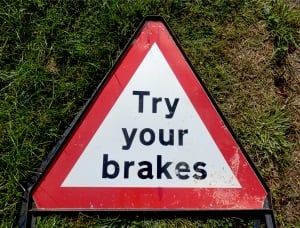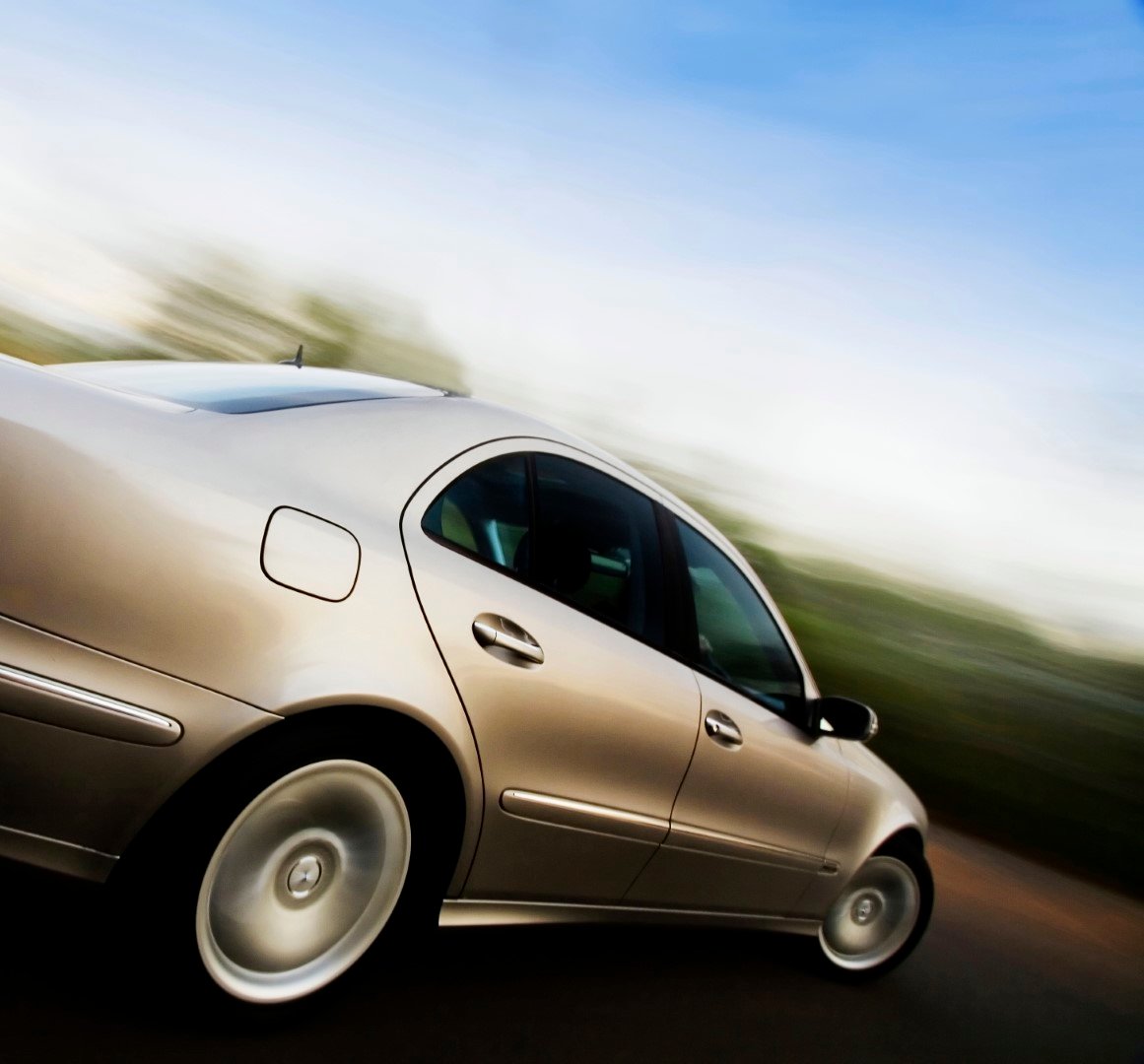What To Do When Your Car Hits 75,000 Miles?
The car & truck landscape looks very little like it was when we were growing up (or our parents). It used to be true that 100,000 miles were a...

A not-uncommon question that mechanics are asked concerns “why does my front end shake while braking”?
 The car feels fine while driving at normal speeds, but when the brakes are applied, the steering wheel will vibrate. Bell Performance’s master mechanic James Dunst weighs in on the explanation for the problem and the solution.
The car feels fine while driving at normal speeds, but when the brakes are applied, the steering wheel will vibrate. Bell Performance’s master mechanic James Dunst weighs in on the explanation for the problem and the solution.
There are a number of reasons for front brake pulsations that will be felt in the steering wheel. I‘ll give the number one reason at the end of this explanation. But in order to fully understand the problem, the first thing that needs to be considered is the condition of the front steering linkage. Loose tie rod ends and steering linkage will magnify this problem. In most cases, these will not be the primary reason for the pulsations but they will make the problem feel worse. So you would need to be sure to address these problems in addition to what's causing the vibrations to happen in the first place.
The biggest reason for this shaking problem is the condition of your rotors – the disc your brake pad clamps down on when you apply your brakes. Most commonly, the vibration happens because the rotors have some kind of imperfection on their surface or they have changed shape (warped) over time.
How do rotors get warped
Warping like this can happen for several reasons.
The thickness of the rotors plays a key role. The rotors will get thinned out over a lifetime of use - even normal braking will gradually remove material from the rotors. And normal braking produces heat from the friction of the pad clamping down on the rotor. As the rotors slowly get thinner, they are less able to absorb this heat and the possibility of damage goes up.
Driving in a mountainous area where brakes are applied continuously on the downward slope will overheat the front brake rotors, causing them to warp, which will result in a brake pulsation.
Front calipers that do not retract after braking will cause overheating of the front brake rotors and lead to warping. This usually happens in higher mileage vehicles when rust and corrosion prevents the calipers from retracting, which keeps the brake pads in contact with the brake rotors. If the rotors get warped, they will cause vibration whenever the brakes are applied
Sometimes you can have a brake job performed and the rotors are turned down too far (have too much material removed). Brake rotors and drums are marked with a minimum thickness that they can be turned down to. Reducing the thickness too far contributes to poor heat transfer, leading to rotor warping.
It’s also important to machine-turn new rotors before they are installed. Most rotors are not perfectly true when they are new. If new rotors are stacked on top of each other in storage it can result in warped rotors. Rotors need to be stored by standing them on end which prevents this warping. Any mechanic worth their salt will know these things.
The number one reason for the problem?
And finally, the number one reason for pulsating front brake rotors is over tightening the front wheel lugs. This information was given to me by the head of Sears Automotive in Chicago. They did an extensive study because of returning customers who had this pulsation complaint. What they found was that wheel lugs need to be tightened with a torque wrench, which allows you to put the same tension on all the lug nuts. The over-tightening of these lug nuts caused the rotors to warp. It is very important that an air-operated (pneumatic) impact wrench never be used to tighten wheel lugs - it's very easy to over tighten the lugs in this manner.
How tight should they be? Consult your vehicle's owners manual, which gives the proper tightening level for every fastener found in your vehicle. A torque wrench is the only reliable way to know if you've hit that mark vs. going under or over.
The car & truck landscape looks very little like it was when we were growing up (or our parents). It used to be true that 100,000 miles were a...

Is it time to put the old hot rod in storage until spring? Lots of people only own seasonal cars - or they choose to put a car in storage if they...

There’s lot of power in a name, in what you call something or in how you classify something. If you associate a given name with something good or...